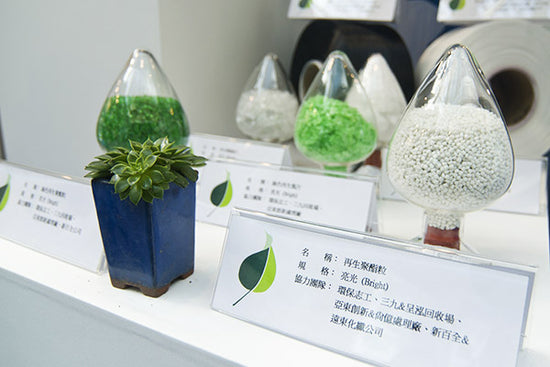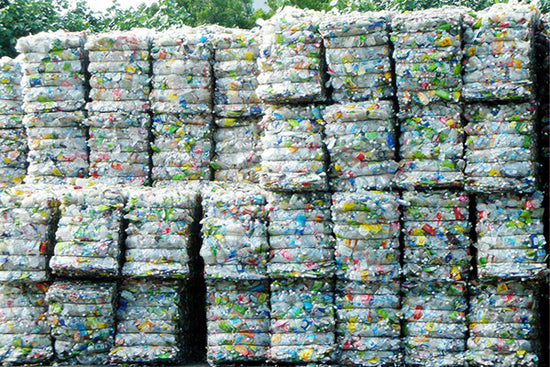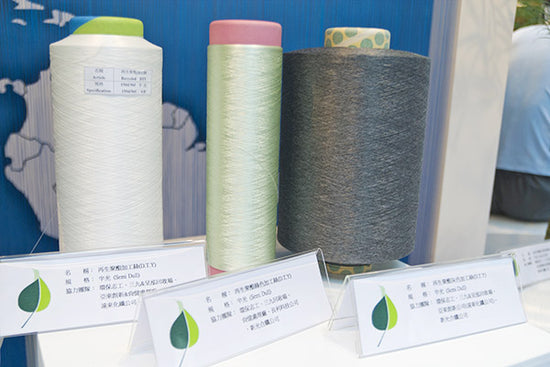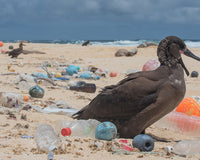The first step to inspiring beneficial change is becoming informed.
After viewing Tzu Chi USA's recent publication titled “20 Things You Can Do to Reduce Plastic Pollution,” we were inspired to contribute our own helpful tips as well!
At DA.AI Technology, we believe it is our essential human duty to both protect and improve the environment. We do so as a team founded on compassion through our plastic reclamation process, and transform these recycled materials into a resource that benefits both society and the planet.
One other way that DA.AI strives to help the environment is through encouraging proper recycling habits, as well as utilizing alternatives to single-use plastics. Recycling is great, however, wherever possible, not using these single-use plastic items is even better.
View our list of seven things that can help you reduce your dependence on single-use plastics. While this list cannot help you eliminate all plastics in your life, we do hope that it might inspire a more conscious outlook. Let’s begin!
Simple Lifestyle Changes
1. Green Your Style
Choose clothing and other personal items made from earth-friendly materials instead of microfibers and other synthetic fibers, which pollute our water when being washed. Also, consider supporting sustainable brands that care about people and the planet over businesses that pollute the earth. How about these polarized sunglasses to get started? Or perhaps this soft and light scarf?
2. Recycle The Right Way
While everyone knows they should be recycling by now, even the best of us still don’t always get it right. Turns out, we recycle only a small fraction of the plastic waste we produce, and that’s partly due to poor recycling techniques. Remember to rinse out your containers. Otherwise, they might contaminate other plastics and the ground around them in a landfill. Also, avoid tossing out recycling in a used plastic bag. What might seem like a smart idea could turn out to be potentially damaging to recycling machinery. Tzu Chi environmental volunteers are pros at recycling, and collect discarded PET plastic bottles, for example, to be recycled and transformed into something new that benefits the planet.
3. Take A Pledge To Reduce Your Plastic Use
Be a protector of the ocean! When everyone becomes an ocean advocate, we can set in motion the solution to ocean plastic pollution. Pledge to take on the #PassOnPlastic Challenge with your Tzu Chi family. Show us through a submission how you’re passing on single-use plastic and protecting our planet. Don’t forget to nominate a friend! Click here to see how you can make your commitment to #PassOnPlastic. Here’s a reusable alternative to single-use plastic water bottles.
4. Wash Synthetic Fabrics Differently
Synthetic materials like polyester, rayon, acrylic, and nylons release tiny fibers of up to less than 5 millimeters every time they are washed in our laundry. In a given load, an ordinary fleece jacket will release up to 2 grams of microfibers into water. These microfibers are known to have found their way into oysters, crabs, and other marine life that is often fished for consumption.
The solution?
When you need to wash that favorite top of yours, your warm fleece sweater, or comfy sweatpants, ensure you do so in cold water (to encourage as little release of microfibers as possible), as infrequently as possible, and only when the laundry load is full. Then, on your next shopping trip, look for garments and linens made from natural fibers, like cotton, silk, and wool, which biodegrade in water faster than their plastic counterparts.
If you have room in your budget, buy a microfiber-catching laundry bag or consider investing in a laundry filter. And if you have even more room, switch out your top-loading machine for a front-loading one (you’ll reduce the amount of microfibers released by up to 7 times!).
5. Travel In Style - And With Your Own Cutlery
Each day, Americans use over 100 million single-use plastic utensils. Convenient though they may be, biodegradable they are not.
Instead, bring your own cutlery when you travel or invest a small travel set that can be left in a purse, bag, or glove compartment for easy storage. Even if sustainability and being eco-friendly isn’t on your mind, it will at least come in handy anytime you’ll need an extra fork, spoon, knife, or even pair of chopsticks on hand.
6. Drink Straight From The Cup And Say No To Straws (Stirrers, Too)
Americans use over 500 million straws per day. That’s enough to fill 127 school buses! According to For a Strawless Ocean, they’re often “too lightweight to make it through the mechanical recycling sorter. They drop through sorting screens and mix with other materials and are too small to separate, contaminating recycling loads or getting disposed of as garbage.” It’s the same case for the straw’s smaller cousin, the coffee stirrer, too.
Now, with many municipalities, states, and even countries now trying to ban single-use plastic straws and raise awareness around the issue, you can do your part by asking your server not to include any straws - or even lids, when appropriate - in your next beverage order. You can also add your sugar to your cup first and dissolve it in your hot beverage to avoid using a stirrer.
But when you’ve got to go with a straw, be it for medical reasons or other, use washable metal straws or compostable paper straws, which often come in different colors and designs for various events.
7. Spread The Word And Educate Others
Stay informed on issues related to plastic pollution, and help more people become aware of the problem. Tell your friends and family about some simple ways in which they can become part of the solution, or host a viewing party for one of many plastic pollution-focused documentaries. Also, remember to check out the #PassOnPlastic Challenge!














